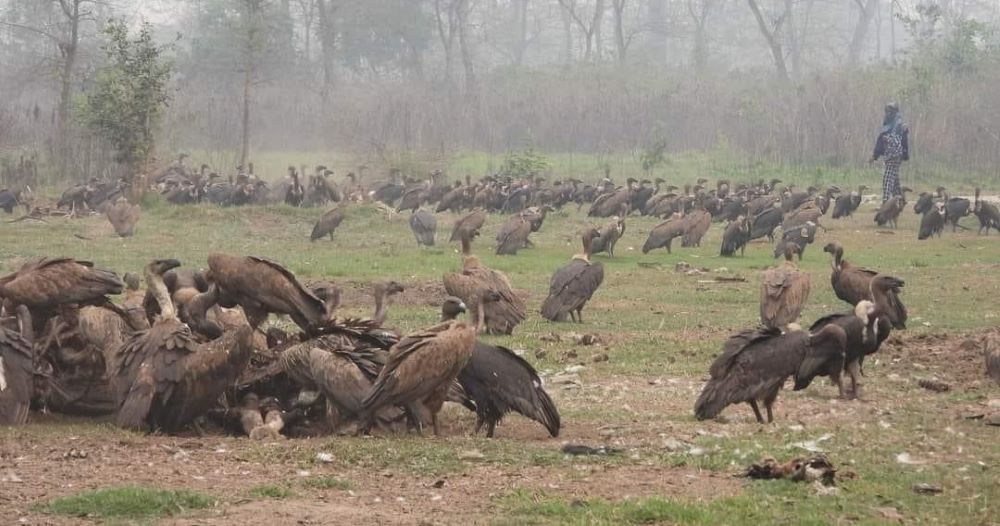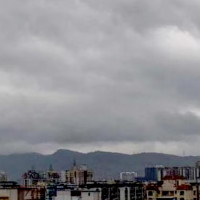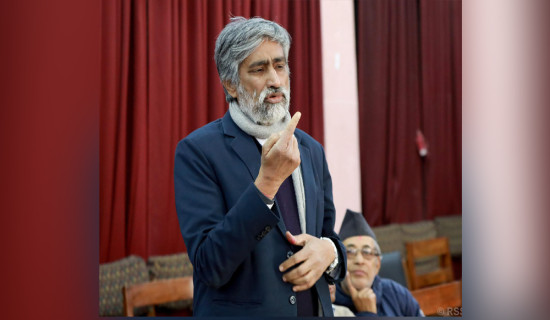- Wednesday, 19 February 2025
Vulture restaurant becomes biodiversity study centre
By Homraj Ranabhat,Nawalparasi, Apr. 18: Jatayu Restaurant, which was established 18 years ago in Kawasoti Municipality -13 of Pithauli, in East Nawalparasi district, to protect endangered vultures, is now emerging as a tourist destination and a biodiversity study centre.
For the past five years, students and researchers studying biodiversity, tourism and forest, and environment have been visiting the restaurant to study vultures, their species, lifestyles and habitats, said Chairman of Jatayu Restaurant Management Committee and ornithologist DB Chaudhary.
Chaudhary said since it is now the season for migration, the number of vultures is increasing in the restaurant as there is good management of the food supply needed for the vultures. Many vultures across the country come here over April-May (Baisakh-Jeth) every year.
The restaurant is open for those who come to study and do research during the two days of a week when food is given to the vultures kept there. Currently, 20 to 30 people are coming to visit the restaurant at a time, he said.
Chaudhary said that since a large number of vultures are seen on the day of feeding, it would be easy to observe and study them over that period. The vultures here are given food two days a week and on the other days, they eat outside while roaming around in the environment.
Jatayu restaurant was established 18 years ago under the leadership of Chaudhary after the vulture became extinct due to poisonous food and habitat loss. The restaurant has been operated and managed at the community level with the aim of protecting endangered vultures by providing them with poison-free food.
The restaurant brings dead cattle from the village to feed the vultures. Chaudhary said that when cattle died in the cow shed of the restaurant, they would be used to feed the vultures. In addition, dead cattle are brought to different agricultural farms in the district and used as food after testing.
According to Chaudhary, eight species of vultures out of nine found in Nepal can be found in the restaurant, spread over an area of about 52 hectares of the Namuna Community Buffer Zone Forest in Kawasoti-13.
Currently, there are White-rumped Vulture, Egyptian Vulture, Red-headed Vulture and Slender-billed Vulture of native species and Cinereous Vulture, Himalayan Griffon, Griffon Vultures and Indian vultures as visitors at the restaurant. These visitors come during the winter season.
According to Chaudhary, the vulture, regarded as a scavenger of nature, has become endangered due to the decline in its habitat along with the use of drugs like diclofenac, which are used on cattle for treatment.
“If a vulture eats a dead animal treated with diclofenac, its kidneys get affected and may lead to its death within a few days. The vulture’s habitat has also decreased after the destruction of simal (silk cotton) trees where vultures live and nest.
The restaurant charges Rs. 1,000 for foreign tourists and Rs. 300 for Nepali tourists.
















